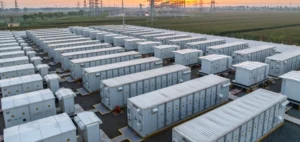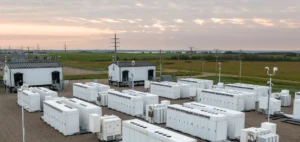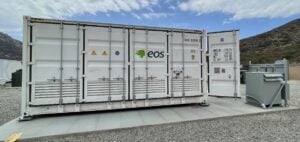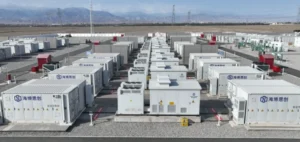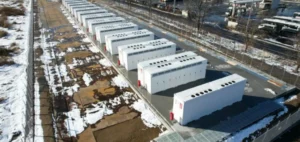Northvolt, the Swedish electric battery manufacturer, is facing a major financial crisis, burdened with $5.84 billion in debt. The company announced Thursday evening that it has filed for protection under the U.S. Chapter 11 bankruptcy law, aiming to restructure its finances and ensure its survival in an increasingly competitive market.
At the heart of this critical situation, Northvolt had only $30 million in available liquidity, an amount insufficient to sustain operations beyond a week. To address this emergency, the company secured temporary funding of $100 million from Scania, one of its key clients and a subsidiary of the Volkswagen group, as well as a $145 million asset-backed loan.
A symbolic departure
Northvolt’s co-founder and CEO, Peter Carlsson, announced his departure during a press conference on Friday, stating that it was the “right time to pass the baton.” The former Tesla executive leaves behind a struggling but ambitious company. The interim leadership is now entrusted to Pia Aaltonen-Forsell, Chief Financial Officer; Matthias Arleth, Chief Operations Officer; and Scott Millar, restructuring officer.
Northvolt, founded in 2016, initially aimed to position Europe as a key player in the battery industry against Asian giants like CATL, BYD, or LG. However, production delays and declining demand from automakers have weakened the company. In May, BMW canceled a €2 billion order due to these delays.
Urgent restructuring
To refocus, Northvolt has taken drastic measures. The company has cut 1,600 jobs out of its 6,500-strong workforce and suspended the development of its main production site in Skellefteå, Sweden. It has also decided to focus exclusively on the production of battery cells, abandoning segments like cathodes and recycling.
Despite Northvolt’s strategic importance to Europe, the Swedish government has refused to provide financial support. However, Sweden’s Minister of Energy and Industry, Ebba Busch, expressed hope that the restructuring process would ensure a long-term solution for Northvolt.
A glimmer of hope?
Northvolt plans to complete its restructuring by the end of the first quarter of 2025. The temporary funding obtained will last until early next year, but recapitalization remains essential. “It is possible that those financing today’s process will also be part of the long-term solution,” said Peter Carlsson before his departure.
The challenge remains immense for Northvolt. The company must convince its shareholders, including Volkswagen and Goldman Sachs, to reinvest despite the failure of previous negotiations. Northvolt’s future also depends on a rebound in battery demand and its ability to catch up on production delays.





